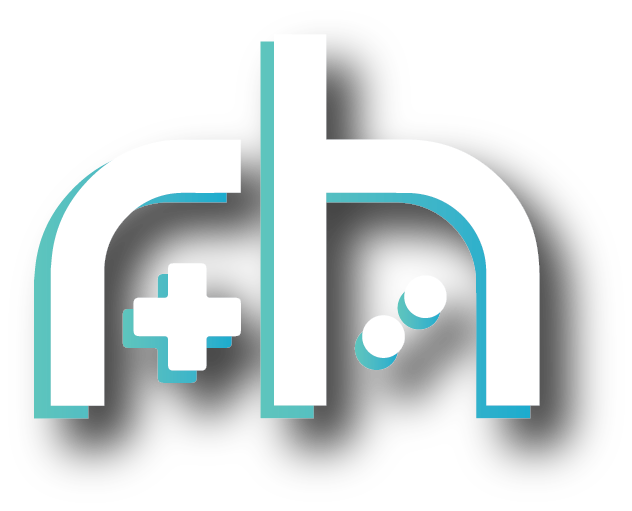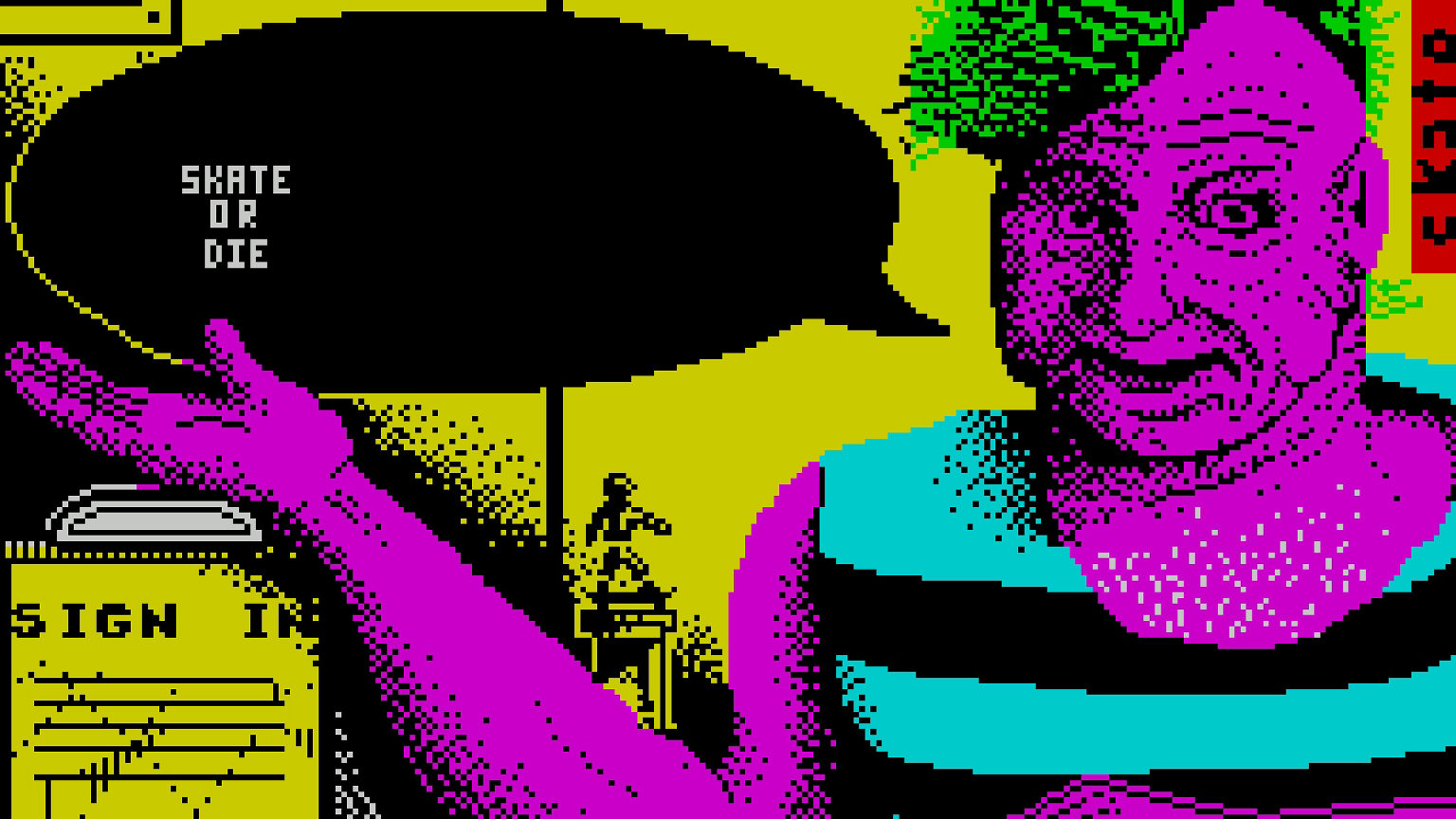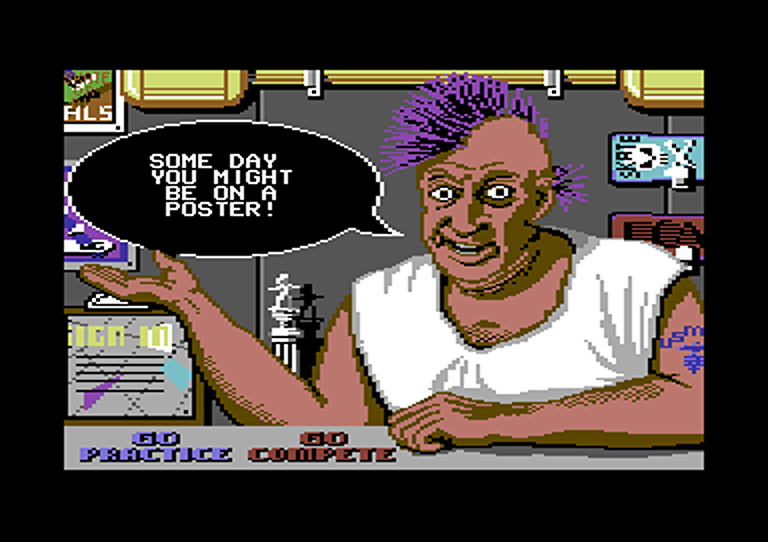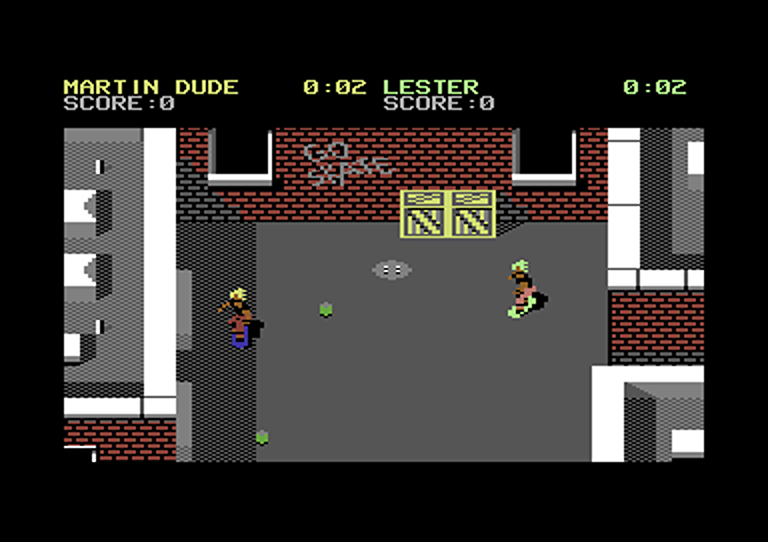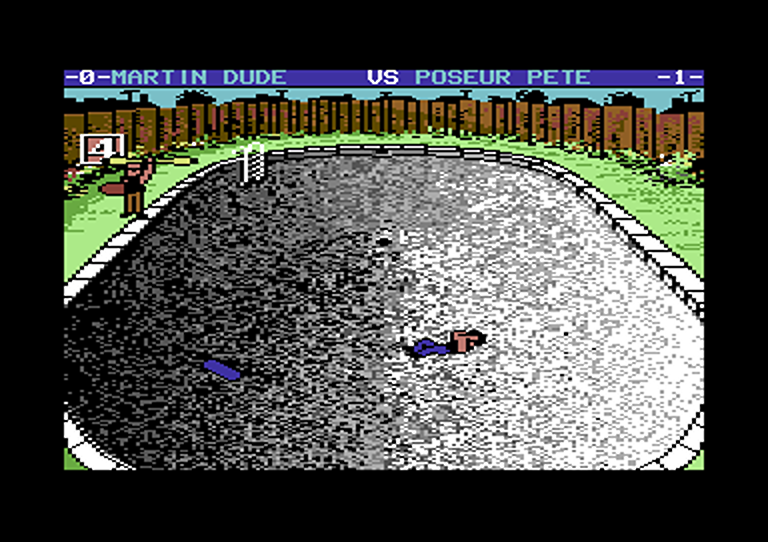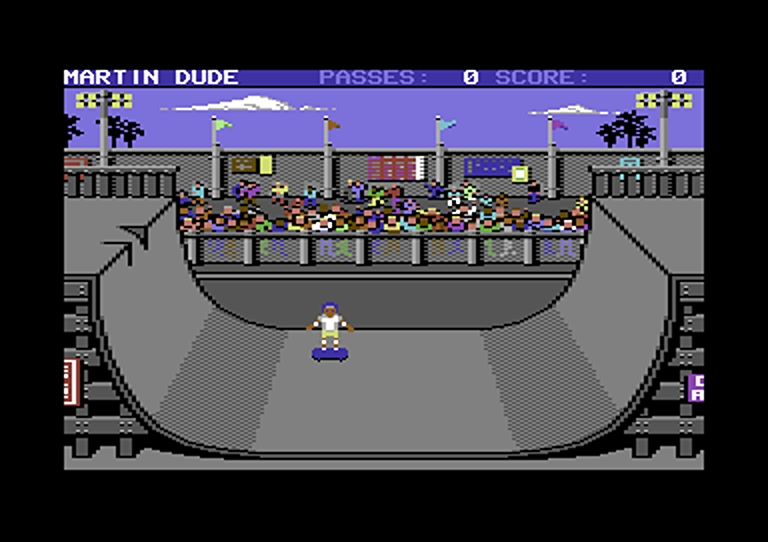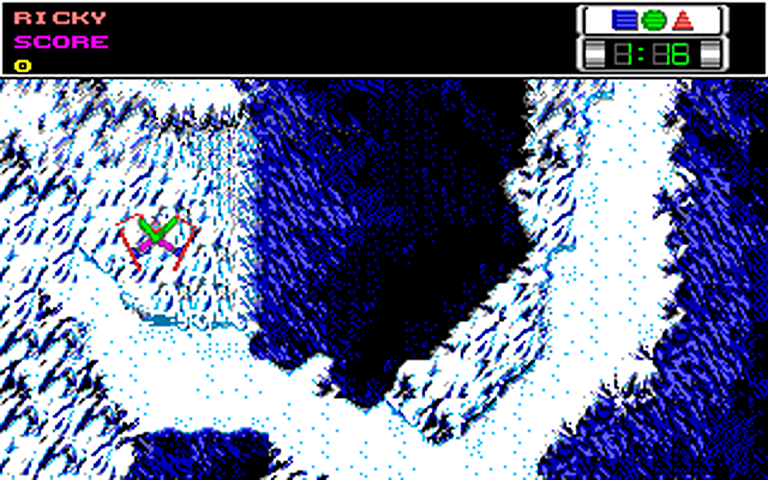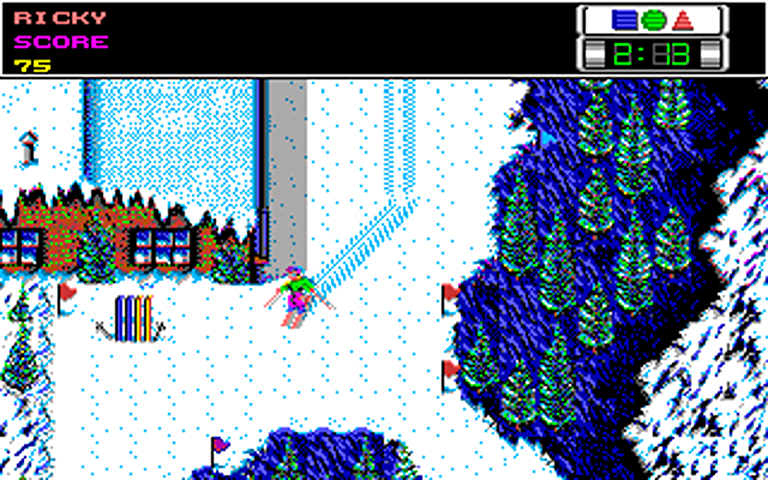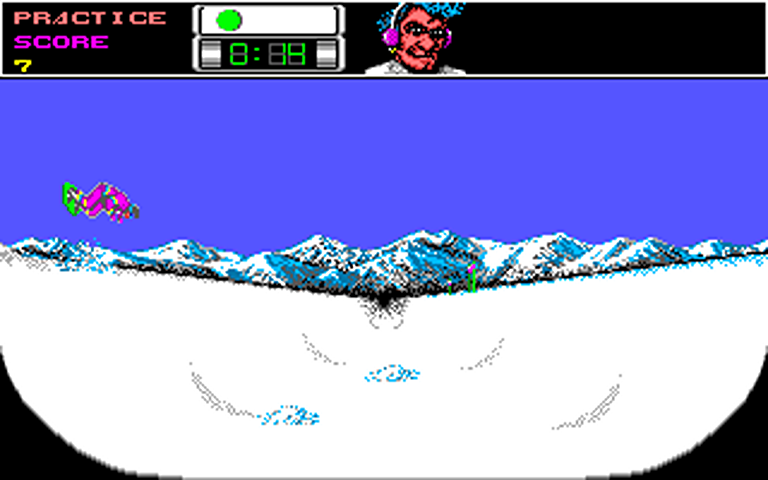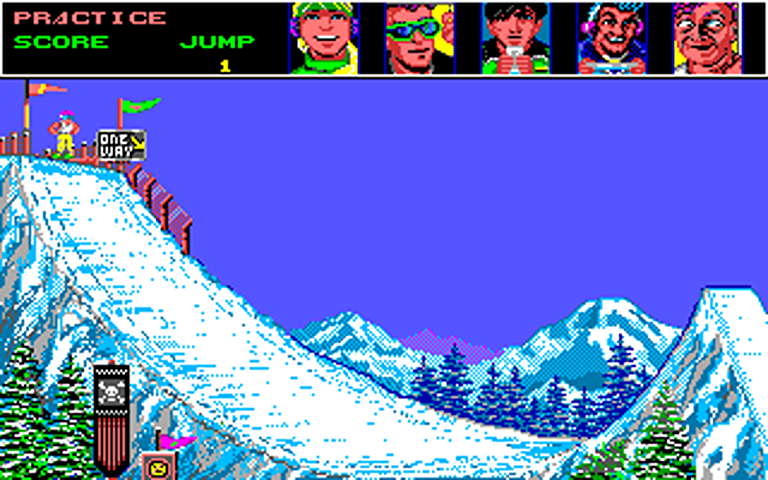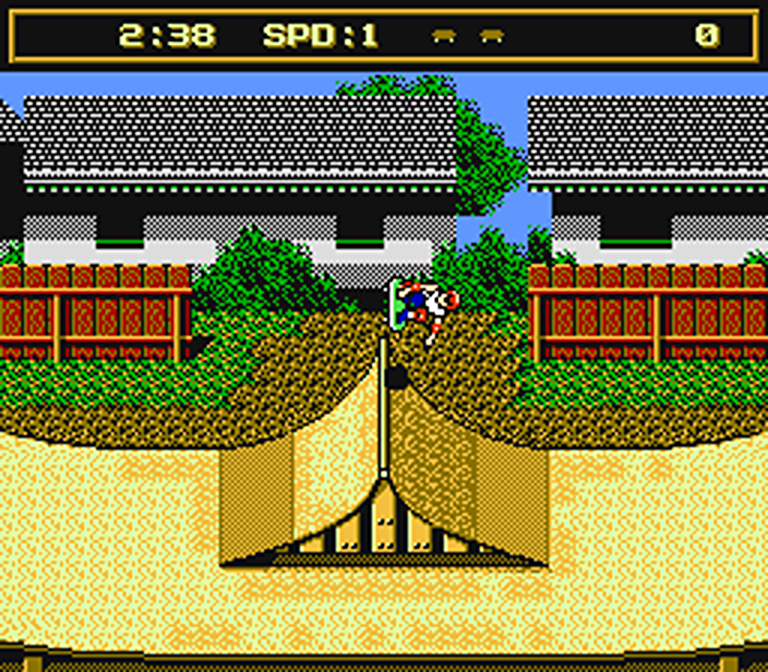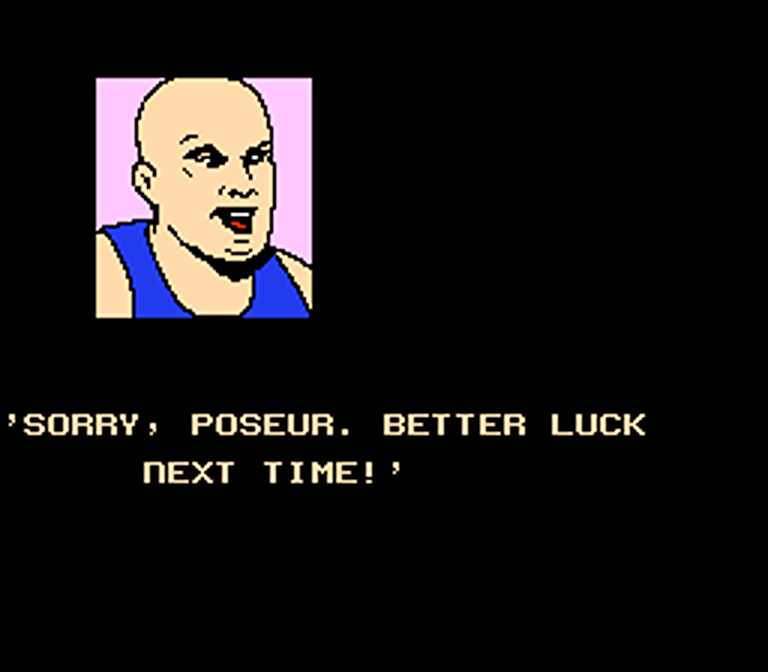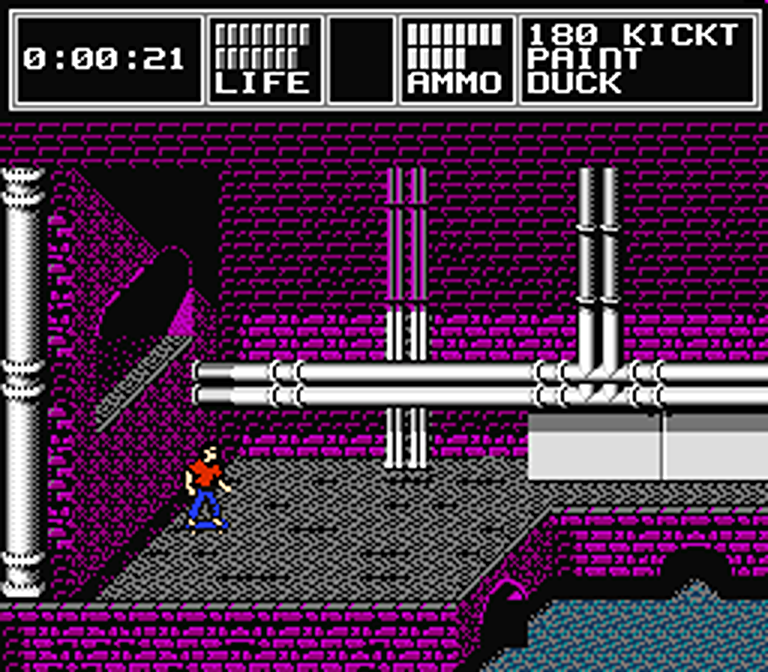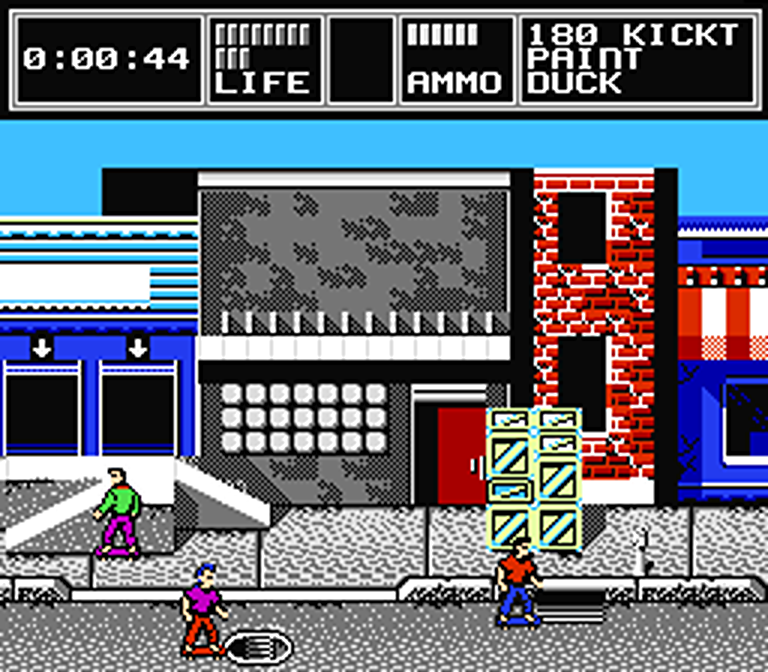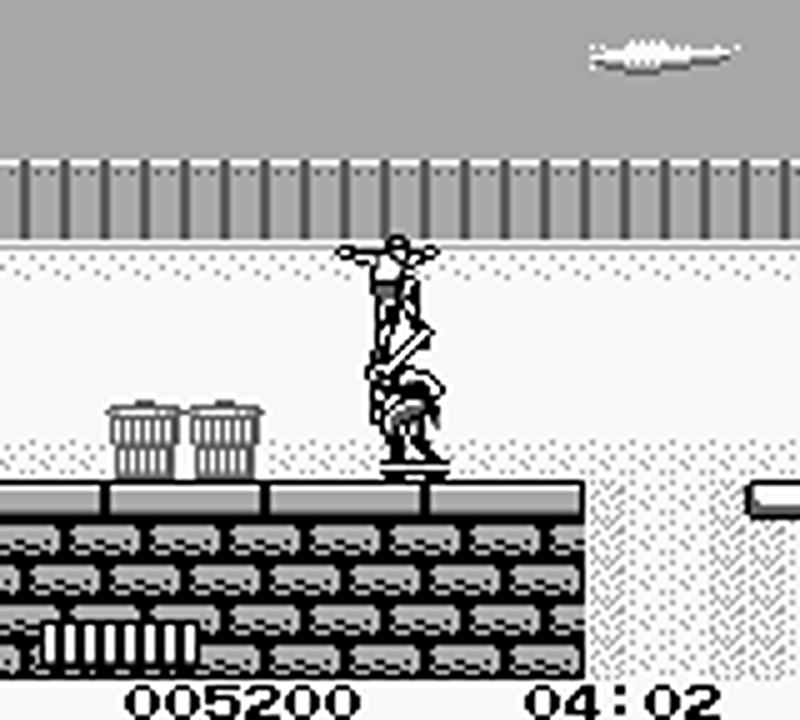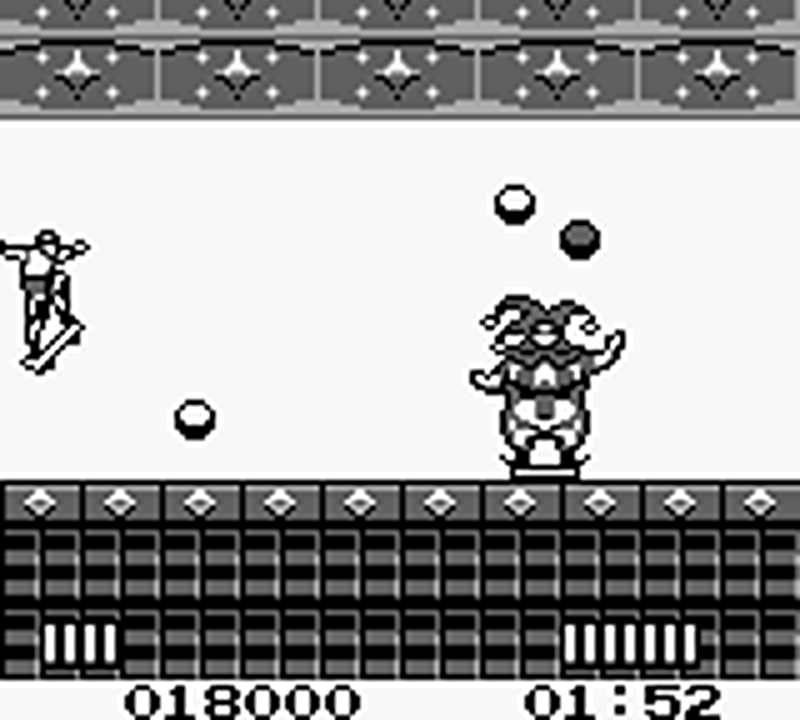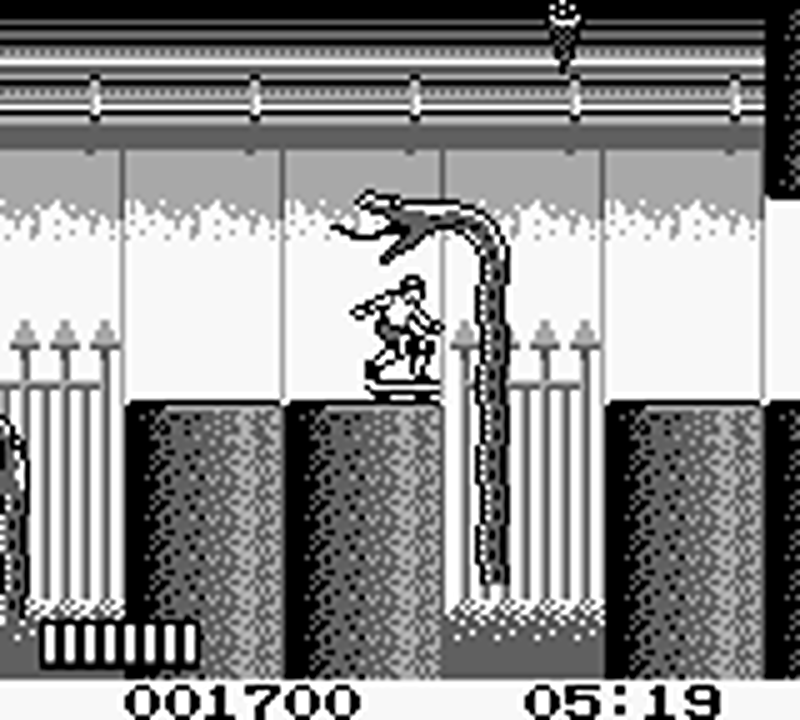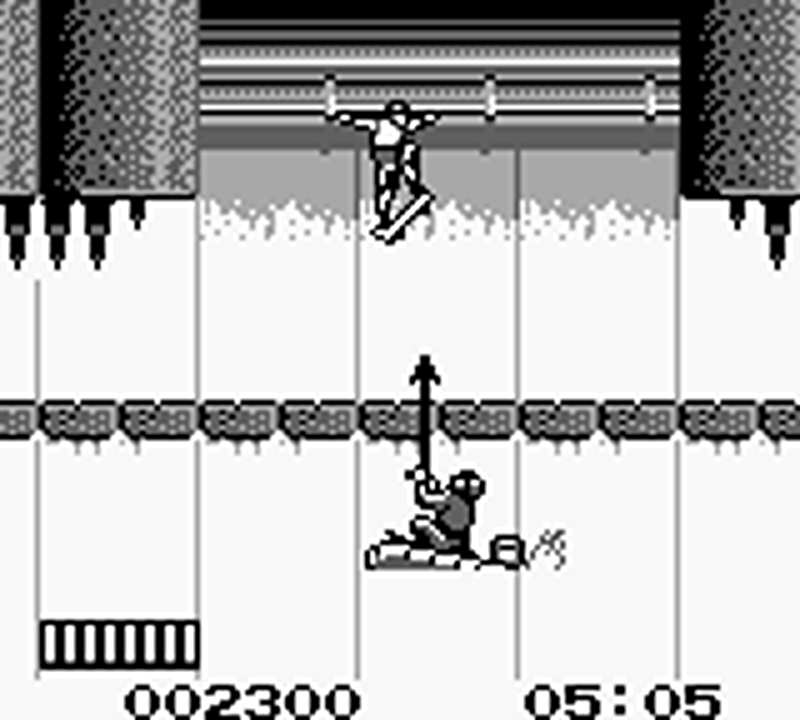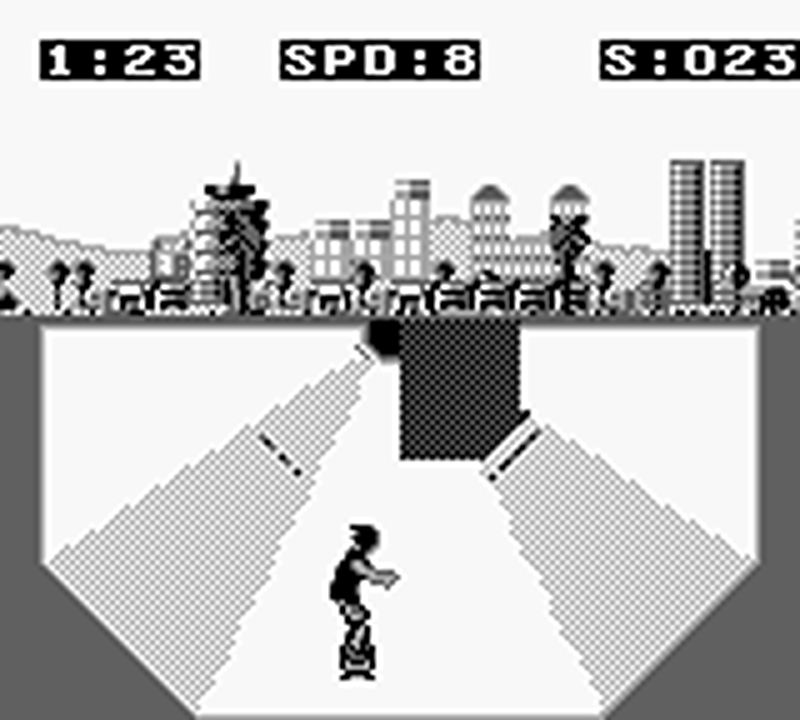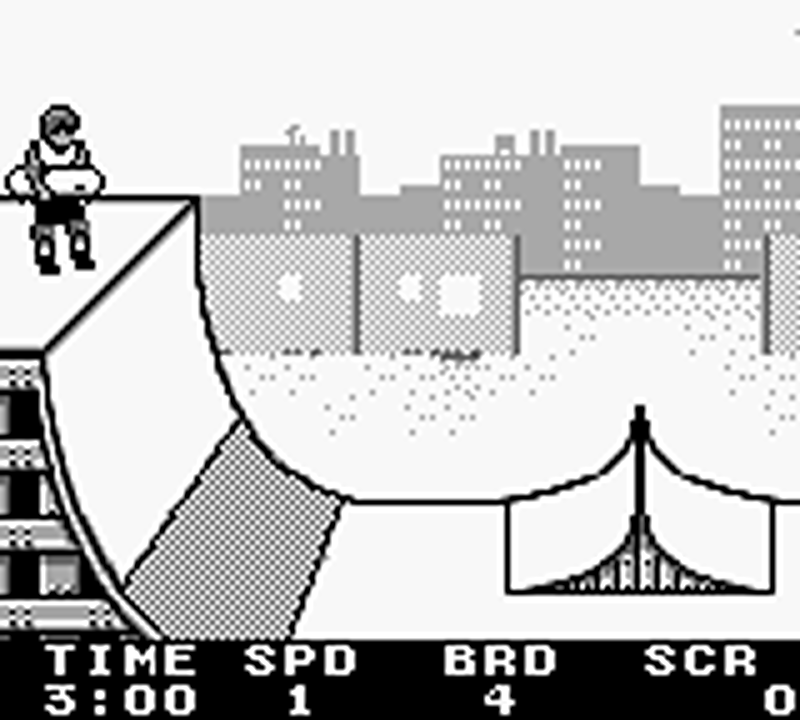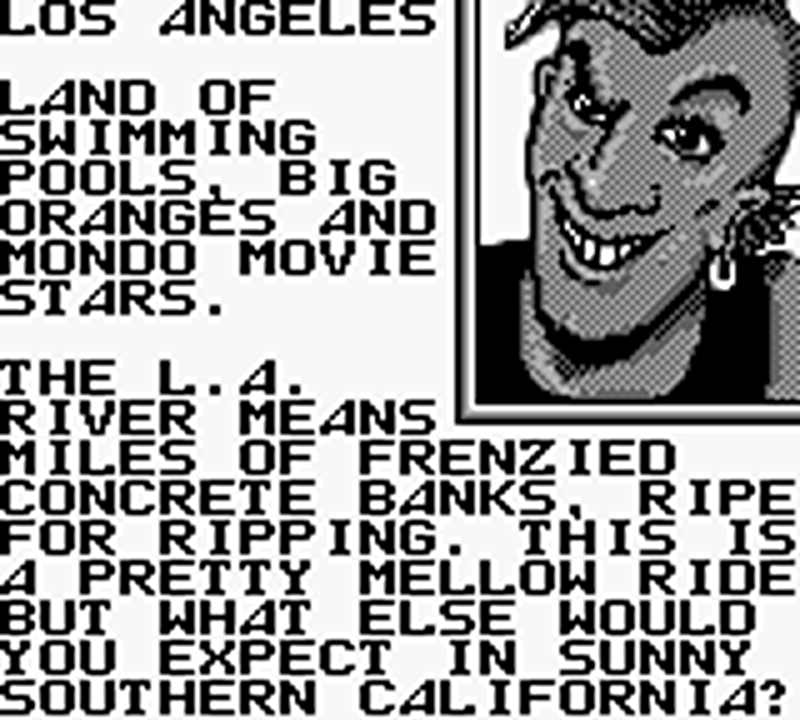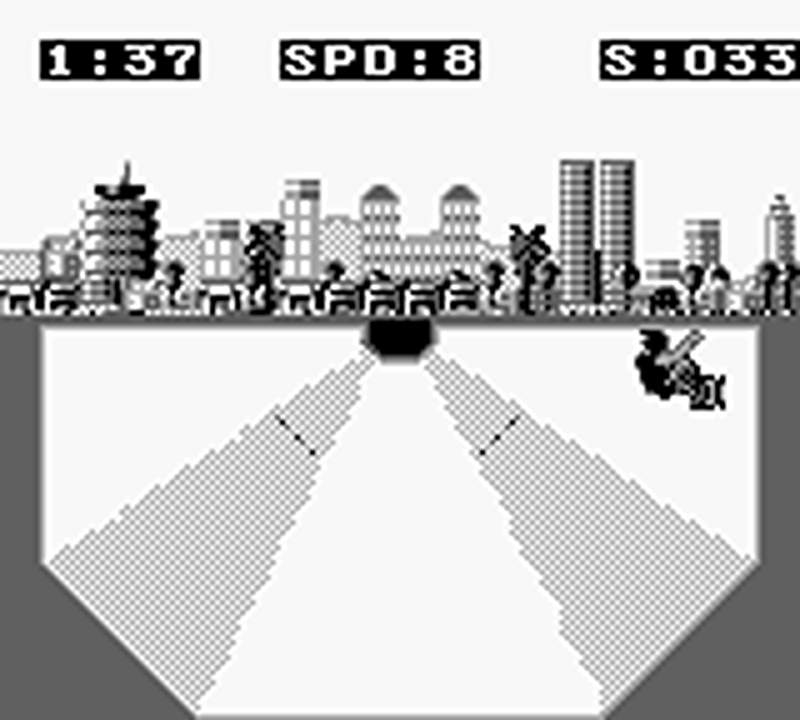720º spun its way into our collective hearts via a totally rad cabinet in arcades far and wide, but its home ports played like shit on a Nintendo controller, and the port was more frustrating than fun. Could that formula even be adapted to the burgeoning 8-bit home market, with its angular controllers or chunky PC keyboards? The Skate or Die! series tried, with moderate success. And then things got weird.
Electronic Arts returned to their skate. series this year with the okay new free-to-play entry, simply titled skate. What most don’t know, though, is that Electronic Arts has a long history with skateboarding, dating back to the first game they ever internally developed: 1987’s Skate or Die! for the Commodore 64 (and eventually other platforms like the ZX Spectrum and Nintendo Entertainment System).
Game-play-wise, the game featured five events: two half-pipe, two downhill, and one hilariously called “pool jousting,” which is exactly what it sounds like. The game’s similarity to California Games was no accident, either. EA poached the displeased developers of that series from Epyx as they were mass-exiting over corporate decisions surrounding Epyx’s partnership with Atari.
The game adopted a more punk rock aesthetic than 720º or the California Games series that Skate or Die! was directly modeled after. In some markets, the game was bundled with a full-sized, completely assembled skateboard and a bonus cassette with the soundtrack. Interestingly, the Nintendo version was developed and released by Konami, who’d eventually run with the series for some spin-offs.
While it wasn’t a particularly fun game, it’s important for being the first home console skateboarding game that was actually focused on the sport, and didn’t just use skateboarding as a means of platforming. Despite its shortcomings, its focus on head-to-head gameplay and attractive visuals were enough to make the game a success, and a franchise was born.
A few years later, EA followed up Skate or Die! with the less successful Ski or Die!. The game retained the same structure as the original, and once again, Konami provided a port for the Nintendo Entertainment System. The events featured varied from snowboarding half-pipe competitions to snowball fights and tube sled racing.
Later that same year, Electronic Arts released a proper sequel, Skate or Die 2: The Search For Double Trouble. Gone was the California Games structure, replaced in favor of a weird hybrid of popular genres. This time, you are an amateur skateboarder, moving left-to-right, armed with a paintball gun and a dream.
As the title implies, you’re searching for the Double Trouble half-pipe, and you progress through an honest-to-goodness story to get there. You whoop some bad-guy ass, barter CDs and hot dogs to upgrade your board, and skate all the parks and pipes you find along the way. You can also backtrack and hit old spots with your new boards. It sounds dumb, but in almost every way, it is more fun to play than the original. Unfortunately, the fun didn’t last, and EA wouldn’t return to skateboarding games until 1998’s Street Sk8er.
That wasn’t the end of the Skate or Die! series, though. Konami found quite a bit of success with their ports of the Skate or Die! games, and wanted to bring the series to Nintendo’s recently released Game Boy. In 1990, they did just that with Skate or Die: Bad ‘n Rad. Similar to The Search for Double Trouble, Bad ‘n Rad was a more traditional side-scroller, with some additional top-down sections. It played fast and looked pretty good, too!
Finally, in 1991, Konami released what would ultimately be the final Skate or Die! game. Skate or Die: Tour De Thrash was a return to the series’ roots, with a focus on competing in trick-based competitions. In a lot of ways, Tour De Thrash remains the funnest of the bunch, and its twitchy controls and stylized art were an influence on newer games like Olli Olli.
Aside from a failed reboot in the 2000s, that was the end of Skate or Die’s brief reign. While the original series was ultimately short-lived, its moderate success was massively influential, proving there was a dedicated home market for skateboarding games long before modern entries.
What did you think of this article? Let us know in the comments below, and chat with us in our Discord!
This page may contain affiliate links, by purchasing something through a link, Retro Handhelds may earn a small commission on the sale at no additional cost to you.
